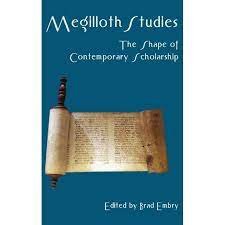Books
The Rhetorical Use of Numbers in the Deuteronomistic History. VTSup 191. Leiden: Brill, June 2022.
The Deuteronomistic History contains many vast troop and casualty numbers. What purpose does this literary device of numerical hyperbole serve? What rhetorical purposes do any of the numbers in this text serve? In The Rhetorical Use of Numbers in the Deuteronomistic History: “Saul Has Killed His Thousands, David His Tens of Thousands,” Denise Flanders explores the variety of rhetorical effects that numbers have on the narrative of Joshua–2 Kings. Flanders demonstrates that numbers in Joshua–2 Kings often work in surprising and subversive ways. Rather than regularly glorifying a leader, large casualty numbers may actually anticipate a ruler’s downfall. Rather than underscoring an Israelite battle victory, numbers sometimes qualify or undermine the triumph of victories.
Interpreting Biblical Numbers. Baker Academic (forthcoming, 2025).
When students who are serious about the exegetically sound reading of scripture interact with numbers, and with popular, fanciful interpretations of numbers, they tend to respond in two divergent ways. First, many are simply compelled by myths about biblical numbers and embrace them. Though such interpretations often contain faulty logic, they at least provide a meaning and explanation for which the student has been searching. Alternatively, many students completely shun the idea that there is a need to interpret numbers at all. Because they believe that popular numerology has not been faithful to the intentions of the biblical authors, they move in the other direction and insist that all biblical numbers simply provide literal, factual information. They in fact should not be “interpreted” at all.
This book will encourage students and the broader Christian community that there is a third way. Biblical numbers do have meaning, and their study should not be eschewed. At the same time, they cannot mean anything and everything we might want them to mean. This book will provide an accessible, credible resource to help them understand how best to interpret biblical numbers. They will learn which biblical numbers tend to have symbolic value, how numbers in prophetic texts work, and how to interpret seemingly improbable and hyperbolic numbers. They will consider how ancient literary genres help us discern whether numbers are literal or rhetorical, and how numbers can be used intertextually, such that one text intentionally invokes another.
1-2 Samuel in The Bible in God’s World Commentary series. Cascade Publishing (forthcoming, 2026).
The Bible in God's World Commentary (BGWC) series is designed to provide clear interpretation of biblical texts for students, scholars, preachers, and pastors. The series offers careful analysis that facilitates an appreciation for backgrounds and linguistic, grammatical, and theological issues in the text, thus equipping readers to wisely interpret the Bible for today. The series editors are committed to the best in biblical scholarship and have commissioned both established and newer scholars representing a rich array of cultural and national contexts.
The particular vision and mission of this commentary series is to be attentive to how each biblical book presents the good news of God's kingdom and its vision for the justice and compassion to be embodied by the people of God.

